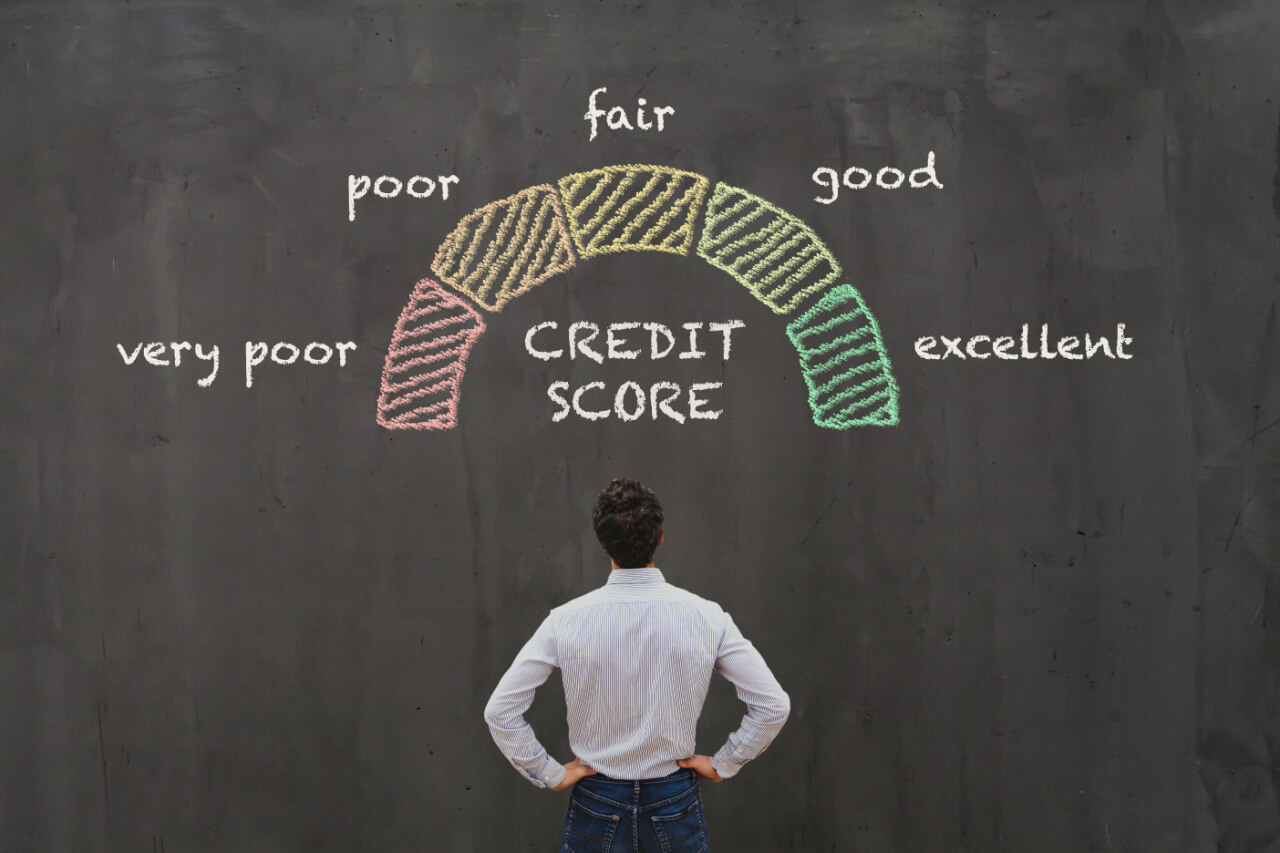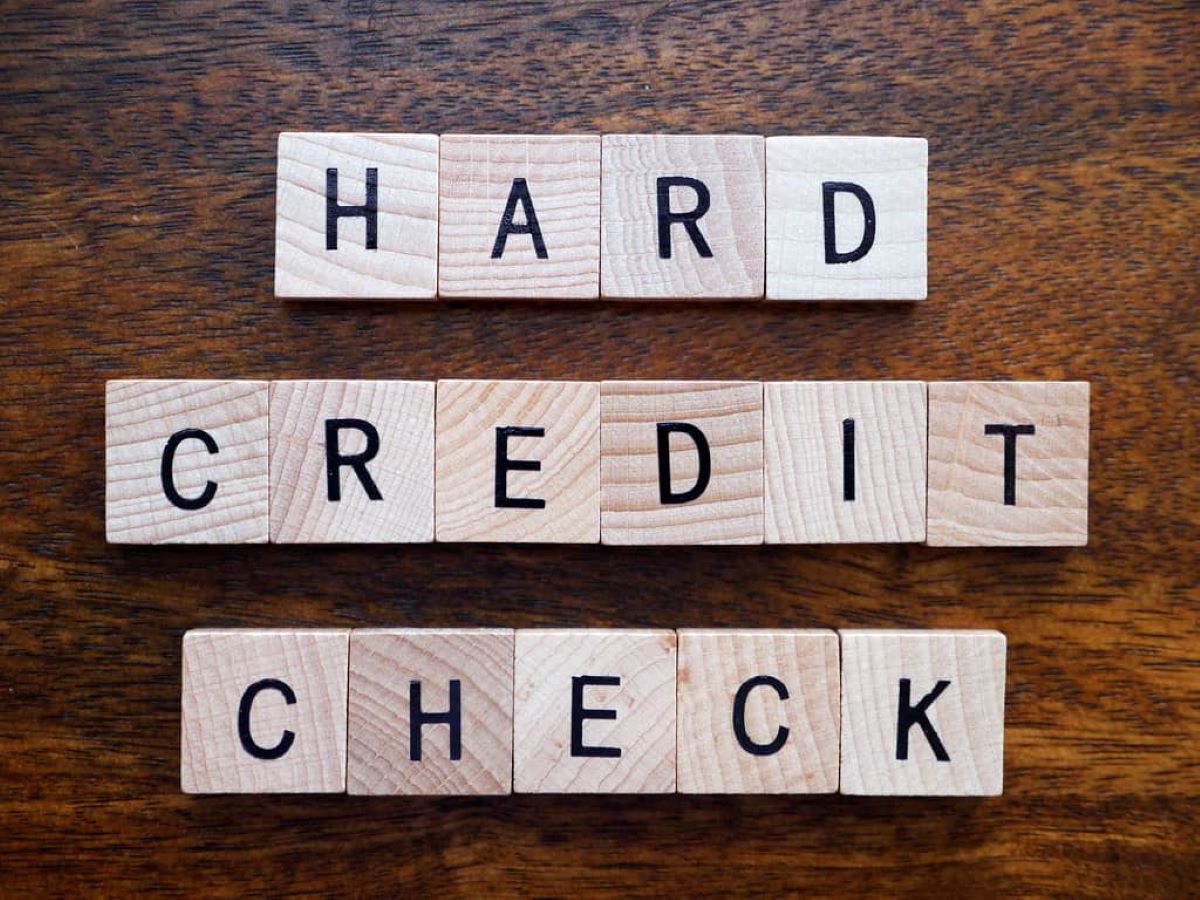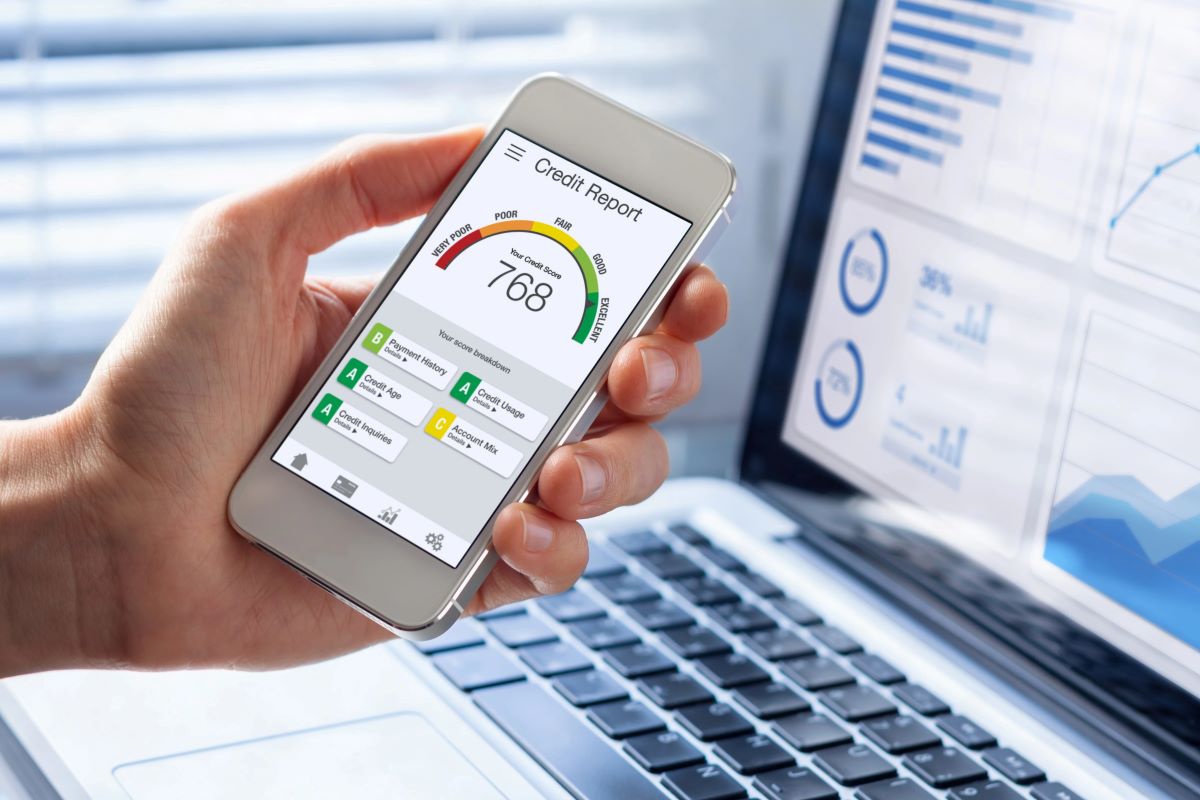

Finance
How Long Bankruptcy Affect Credit Score
Modified: February 21, 2024
Find out how filing for bankruptcy can impact your credit score and overall financial health. Discover the lasting effects of bankruptcy on your credit rating.
(Many of the links in this article redirect to a specific reviewed product. Your purchase of these products through affiliate links helps to generate commission for LiveWell, at no extra cost. Learn more)
Table of Contents
Introduction
Bankruptcy is a financial term that often evokes fear and uncertainty. When faced with overwhelming debt, individuals and businesses may turn to bankruptcy as a last resort to find relief and a fresh start. However, one lingering concern for those considering bankruptcy is how it will impact their credit score.
In this article, we will explore the effects of bankruptcy on credit scores, how long those effects last, and the factors that can influence the duration of the credit score impact. Additionally, we will discuss strategies for rebuilding credit after bankruptcy and regaining financial stability.
It is important to note that bankruptcy can be a complex and highly individualized process, with different rules and regulations depending on the jurisdiction. Therefore, it is always advisable to consult with a qualified financial professional or bankruptcy attorney for personalized guidance before making any decisions concerning bankruptcy.
Now, let’s delve into the world of bankruptcy and credit scores to gain a better understanding of their intricate relationship.
What is Bankruptcy?
Bankruptcy is a legal process that provides individuals or businesses with a fresh financial start by allowing them to eliminate or repay their debts under the guidance and supervision of a bankruptcy court. It is often seen as a last resort for those who are unable to meet their financial obligations.
There are several types of bankruptcy, with the most common being Chapter 7 and Chapter 13 bankruptcy. Chapter 7, also known as “liquidation bankruptcy,” involves the selling of assets to repay debts. Chapter 13, on the other hand, is known as “reorganization bankruptcy” and allows individuals to create a repayment plan to settle their debts over a specific period of time.
Bankruptcy can be filed voluntarily by the individual or business that is in debt, or it can be filed involuntarily by creditors seeking to recover their money. Once bankruptcy is filed, an automatic stay is put into place, which means that creditors must temporarily stop collection efforts, including lawsuits, wage garnishments, and foreclosure proceedings.
While bankruptcy can provide individuals and businesses with a chance to start anew, it also has long-term consequences, particularly when it comes to credit scores. Understanding how bankruptcy affects credit scores is crucial for those considering this financial option.
How Does Bankruptcy Affect Credit Score?
Bankruptcy has a significant impact on an individual’s credit score. A credit score is a numerical representation of a person’s creditworthiness, and it plays a vital role in determining their ability to access credit, such as loans, credit cards, and mortgages. When bankruptcy is filed, it is noted on the individual’s credit report and can cause a significant drop in their credit score.
The extent of the credit score impact depends on various factors, including the type of bankruptcy filed and the individual’s credit history prior to filing. In general, a bankruptcy filing remains on an individual’s credit report for multiple years. For example, a Chapter 7 bankruptcy can stay on the credit report for up to 10 years, while a Chapter 13 bankruptcy can remain for up to 7 years.
The credit score impact of bankruptcy can vary from person to person. In most cases, individuals who file for bankruptcy already have a poor credit score due to their financial struggles. In such instances, the effect of bankruptcy may be less severe compared to someone with a higher credit score. However, it is important to note that bankruptcy will still have a negative impact regardless of the individual’s initial credit score.
After bankruptcy is filed, obtaining new credit can be challenging. Lenders may view individuals who have filed for bankruptcy as high-risk borrowers and may be hesitant to extend credit. If credit is granted, it often comes with higher interest rates and lower credit limits.
It is important to understand that the impact of bankruptcy on credit scores is not permanent. Over time, the negative effects of bankruptcy will gradually diminish as long as individuals take steps to rebuild their credit and demonstrate responsible financial behavior.
Length of Time Bankruptcy Affects Credit Score
The length of time that bankruptcy will affect an individual’s credit score depends on the type of bankruptcy filed. As mentioned earlier, a Chapter 7 bankruptcy can remain on the credit report for up to 10 years, while a Chapter 13 bankruptcy can stay for up to 7 years.
However, it is important to note that while bankruptcy may stay on the credit report for a specific duration, its impact on credit scores gradually diminishes over time. Initially, the credit score may experience a significant drop following the bankruptcy filing. However, as time goes on and responsible financial habits are established, such as making timely payments, keeping credit utilization low, and avoiding additional debt, the credit score can begin to recover.
It is worth mentioning that the credit reporting agencies, Equifax, Experian, and TransUnion, are responsible for maintaining credit reports and determining the duration of bankruptcy’s impact. However, each individual’s credit score recovery time may vary based on their unique financial circumstances and efforts to rebuild credit.
Additionally, it is crucial to distinguish between the bankruptcy filing itself and the individual debts that are discharged during bankruptcy. While the bankruptcy filing remains on the credit report for the specified number of years, individual debts that were included in the bankruptcy may also appear on the credit report with a notation indicating that they were discharged through bankruptcy. These individual debts may also have a negative impact on the credit score, but their impact will diminish over time along with the bankruptcy filing.
Rebuilding credit after bankruptcy requires time, patience, and responsible financial habits. By consistently making on-time payments, minimizing new debt, and practicing good credit utilization, individuals can take proactive steps to improve their credit score and move towards financial stability.
Factors Impacting the Duration of Credit Score Impact
While bankruptcy can have a significant impact on an individual’s credit score, the duration of this impact can vary based on several factors. Understanding these factors can provide individuals with insight into how long they can expect their credit score to be affected by bankruptcy.
1. Type of Bankruptcy: The type of bankruptcy filed, whether it’s Chapter 7 or Chapter 13, plays a role in the duration of the credit score impact. Chapter 7 bankruptcy typically remains on the credit report for up to 10 years, while Chapter 13 bankruptcy may stay for up to 7 years.
2. Credit History Prior to Bankruptcy: Individuals who had a higher credit score before filing for bankruptcy may experience a more significant drop in their credit score and a longer duration of impact. Conversely, individuals with a lower credit score prior to bankruptcy may see a less severe credit score impact and a shorter duration of impact.
3. Individual Credit Reporting Agencies: Each credit reporting agency, such as Equifax, Experian, and TransUnion, has its own policies and methods for calculating credit scores. This can result in variations in the duration of credit score impact reported by each agency.
4. Debt-to-Income Ratio: The debt-to-income ratio is an important factor that lenders consider when evaluating creditworthiness. Individuals with a high debt-to-income ratio, even after bankruptcy, may experience a longer duration of credit score impact as lenders perceive them as higher risk borrowers.
5. Rebuilding Efforts: The efforts individuals make to rebuild their credit after bankruptcy can greatly impact the duration of credit score impact. By consistently making on-time payments, keeping credit utilization low, and responsibly managing new credit, individuals can expedite their credit score recovery process.
It is important to note that while bankruptcy has a significant impact on credit scores, it is not the sole determining factor. Other positive financial behaviors, such as establishing a solid payment history and avoiding late payments or defaults, can help mitigate the negative effects of bankruptcy and speed up credit score recovery.
Rebuilding Credit After Bankruptcy
Rebuilding credit after bankruptcy is not an overnight process, but with time, dedication, and responsible financial habits, it is possible to improve creditworthiness and regain financial stability. Here are some strategies to help individuals rebuild their credit after bankruptcy:
1. Review Credit Report: Start by obtaining a copy of your credit report from each of the major credit reporting agencies. Review the report carefully to ensure that the bankruptcy is accurately reflected, and any discharged debts are correctly marked as such.
2. Create a Budget: Develop a realistic budget to effectively manage your finances. Determine your monthly income, allocate funds for necessary expenses, and establish a plan for debt repayment. Stick to your budget and avoid overspending to minimize the risk of falling into further debt.
3. Make Timely Payments: Pay all bills and obligations on time, as this is crucial in rebuilding credit. Late or missed payments can have a negative impact on credit scores. Consider setting up automatic payments or reminders to ensure timely payments.
4. Obtain Secured Credit: Secured credit cards are a valuable tool for rebuilding credit. These cards require a cash deposit as collateral, and the credit limit is typically equal to the deposit. By making regular, on-time payments and keeping credit utilization low, individuals can demonstrate responsible credit management.
5. Become an Authorized User: Ask a trusted family member or friend to add you as an authorized user on their credit card. Their positive payment history and responsible credit use can potentially improve your credit score. However, it’s important to communicate and establish clear expectations regarding payment responsibility.
6. Maintain Low Credit Utilization: Keep credit utilization low by using only a small percentage of available credit. Aim to use no more than 30% of your credit limit to show that you can responsibly manage credit.
7. Diversify Credit Types: Having a mix of credit types, such as credit cards, installment loans, and mortgages, can demonstrate your ability to manage various types of debt. However, it’s important to be cautious and only take on credit that you can comfortably repay.
8. Monitor Credit Reports: Regularly monitor your credit reports to ensure accuracy and track your progress. Look for any errors or discrepancies and report them to the credit bureaus immediately.
Remember, rebuilding credit takes time and patience. It’s important to remain disciplined, be proactive in managing finances, and avoid falling into bad financial habits. Over time, responsible credit management will contribute to the improvement of your credit score, allowing you to regain financial stability after bankruptcy.
Conclusion
Bankruptcy can have a significant impact on an individual’s credit score, but it is not the end of the road for financial recovery. Understanding how bankruptcy affects credit scores and the factors that influence the duration of the credit score impact is crucial for individuals considering this financial option.
While bankruptcy remains on the credit report for a specified period of time, its impact gradually diminishes over time. By practicing responsible financial habits, such as making timely payments, keeping credit utilization low, and avoiding new debt, individuals can take proactive steps to rebuild their credit and improve their financial standing.
Rebuilding credit after bankruptcy requires patience and discipline. It is important to create a realistic budget, make timely payments, obtain secured credit if necessary, and diversify credit types to demonstrate responsible credit management. Monitoring credit reports regularly for accuracy and progress is also vital in the credit rebuilding process.
It is important to remember that bankruptcy is a complex legal process, and seeking the guidance of a qualified financial professional or bankruptcy attorney is highly recommended before making any decisions. They can provide personalized advice and help navigate through the intricacies of bankruptcy.
Ultimately, while bankruptcy may have a temporary negative impact on credit scores, it is possible to recover and rebuild credit over time. By taking proactive steps and practicing responsible financial habits, individuals can regain their financial footing and move towards a more stable and secure financial future.














